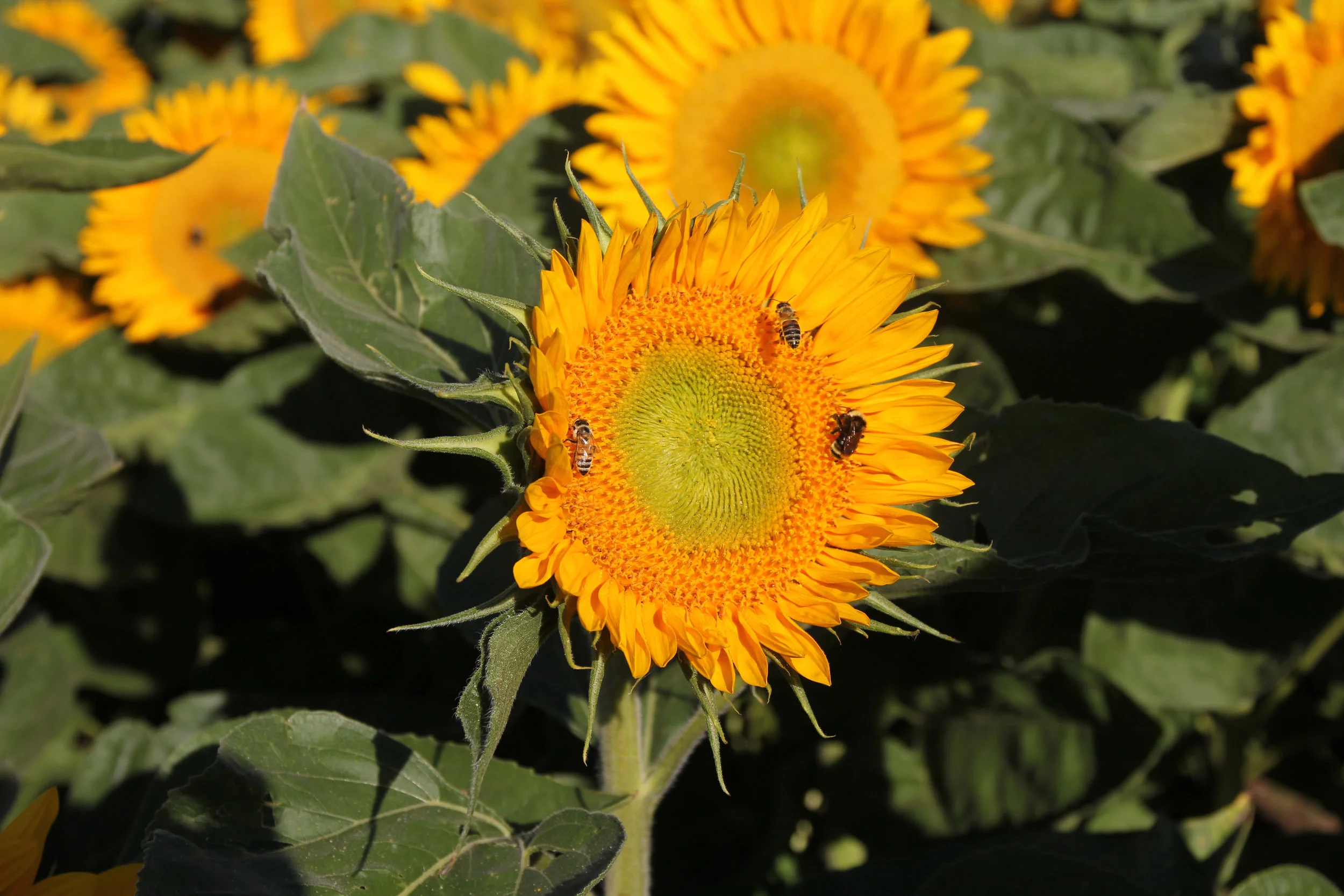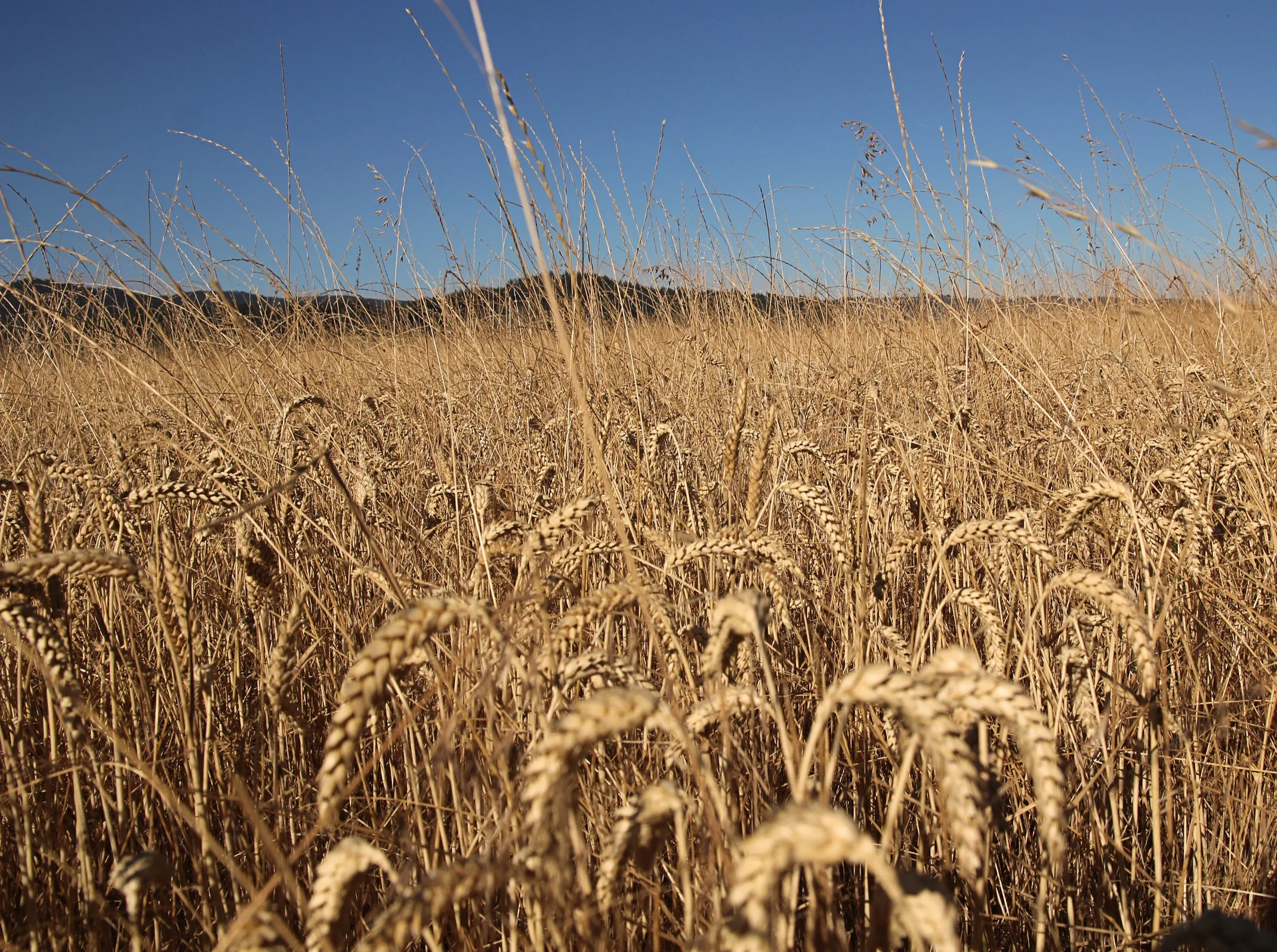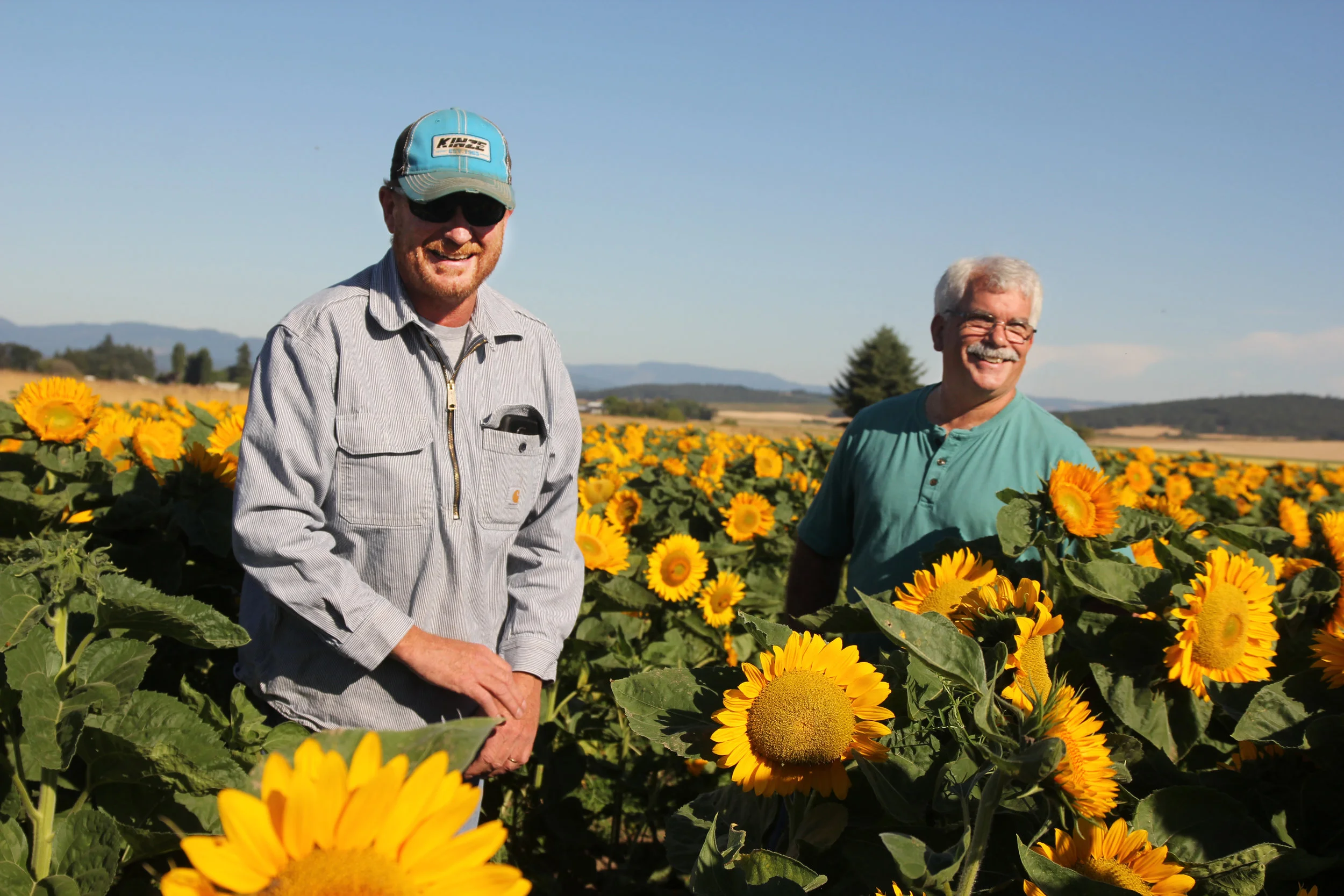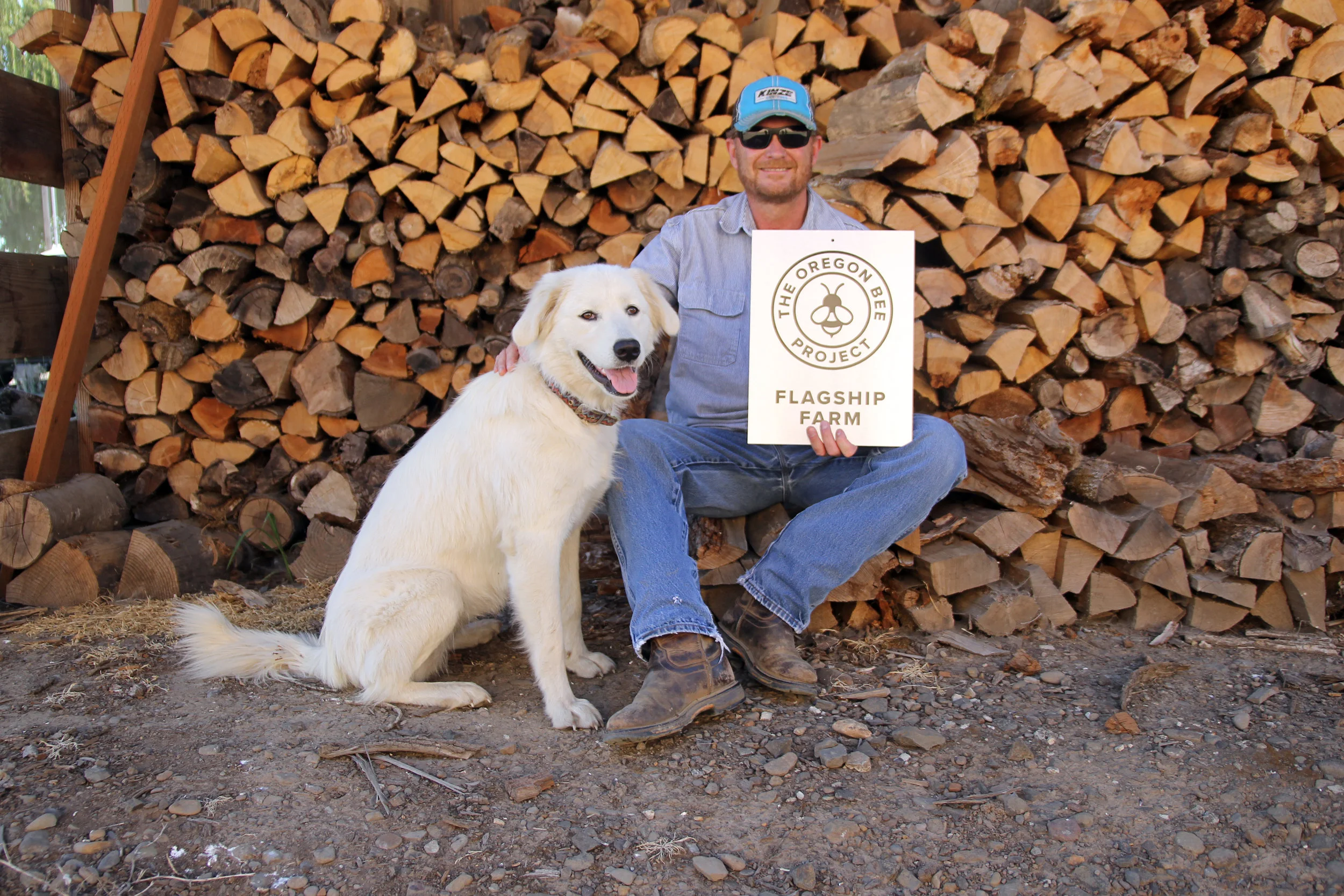Gylan Mulkey Farms
For over two decades, Mulkey Farms has taken advantage of Oregon’s favorable climate to produce a wide variety of diverse crops and seeds, which are shipped throughout the country. They were also one of the early adopters of the Bee Protection Protocol that gives farmers guidelines on how to accommodate pollinators so that they thrive and can form a mutually beneficial relationship with the farm.
Grass seed on the Mulkey farm.
Crops
Grass seed, meadowfoam, vegetable seed, hazelnuts, wheat.
Farmers Markets/Retailers
Contract and commodity production
Location
Monmouth, Oregon
Established in
1995
Owned by
Garth and Susan Mulkey
WHAT ARE THEY DOING FOR BEES?
As a farm with a substantial seed crop, bee stewardship is in Mulkey Farms’ DNA. “We realize the importance of having pollinators, and lots of them, and healthy ones,” says Garth.
Quite simply, bees and Mulkey Farms need each other. “If we don’t have bees, we don’t harvest seed,” says Garth.
To care for the lives of the bees on their land, they work with an onsite beekeeper who keeps the bees healthy and strong for pollination. He has helped them protect the hives before deploying insecticide, which only happens at night to ensure less exposure. Mulkey Farms has been practicing no-till farming for over 15 years, which preserves sites for ground- nesting bees, and they extend the bee season every year by planting a number of pollinator-friendly plants, including vetch, lacy phacelia, buckwheat, and sunflowers.
“Oh, there are some big bumblebees. We’ve got bumble bees the size of housecats. They’re just fun to see.”
meet the farmers
Garth and Susan Mulkey have been farming together for over 20 years, growing about 10 to 12 different crops every year. Garth serves on the steering committee that created the Bee Protection Protocol and takes his advocacy work seriously. “We need to be on the forefront of educating the public and the legislators on what our needs are and also on what we’re doing [in relation to pollinator protection],” he says in a morning interview amongst Mulkey Farms’ rows of sunflowers abuzz with bees.
Garth Mulkey.
